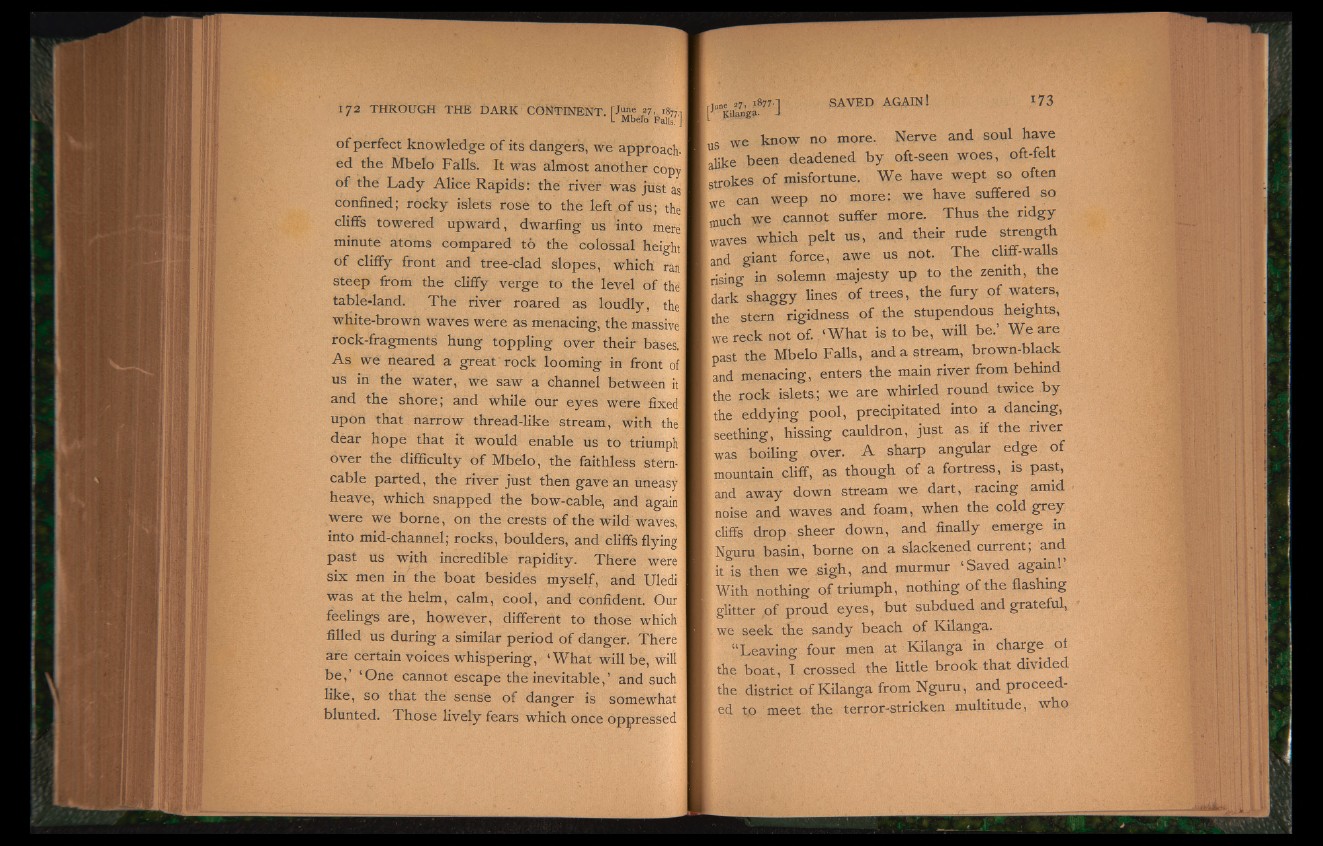
of perfect knowledge of its dangers, we approach-
ed the Mbelo Falls. It was almost another copy
of the Lady Alice Rapids: the river was just as I
confined; rocky islets rose to the left of us; the
cliffs towered upward, dwarfing us into mere
minute atoms compared to the colossal height
of cliffy front and tree-clad slopes, which ran
steep from the cliffy verge to the level of the
table-land. The river roared as loudly, the
white-brown waves were as menacing, the massive
rock-fragments hung toppling over their bases.
As we neared a great rock looming in front of
us in the water, we saw a channel between it
and the shore; and while our eyes were fixed
upon that narrow thread-like stream, with the
dear hope that it would enable us to t r iumph
over the difficulty of Mbelo, the faithless stern-
cable parted, the river just then gave an uneasy
heave, which snapped the bow-cable, and again
were we borne, on the crests of the wild waves,
into mid-channel; rocks, boulders, and cliffs flying
past us with incredible rapidity. There were
six men in the boat besides myself, and Uledi
was at the helm, calm, cool, and confident. Our
feelings are, however, different to those which
filled us during a similar period of danger. There
are certain voices whispering, ‘What will be, will
be,’ ‘One cannot escape the inevitable,’ and such
like, so that the sense of danger is somewhat
blunted. Those lively fears which once oppressed
uS we know no more. Nerve and soul have
alike been deadened by oft-seen woes, oft-felt
strokes of misfortune. We have wept so often
we can weep no more: we have suffered so
much we cannot suffer more. Thus the ridgy
waves which pelt us, and their rude strength
and giant force, awe us not. The cliff-walls
rising in solemn majesty up to the zenith, the
dark shaggy lines of trees, the fury of waters,
the stern rigidness of the stupendous heights,
we reck not of., ‘What is to be, will be.’ We are
past the Mbelo Falls, and a stream, brown-black
and menacing, enters the main river from behind
the rock islets,; we are whirled round twice by
the eddying pool, precipitated into a dancing,
seething, hissing cauldron, just as if the river
was boiling over. A sharp angular edge of
mountain cliff, as though of a fortress, is past,
and away down stream we dart, racing amid
noise and waves and foam, when the cold grey
rliffc drop sheer down, and finally emerge in
Nguru basin, borne on a slackened current; and
it is then we sigh, and murmur ‘Saved again!’
With nothing of triumph, nothing of the flashing
glitter of proud eyes, but subdued and grateful,
we seek the sandy beach of Kilanga.
“Leaving four men at Kilanga in charge of
the boat, I crossed the little brook that divided
the district of Kilanga from Nguru, and proceeded
to meet the terror-stricken multitude, who